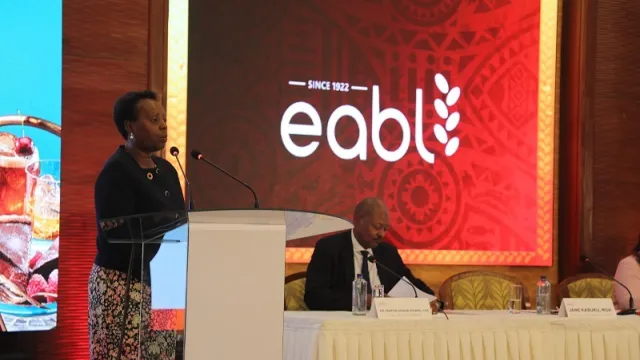EABL profit dips 12% to Sh10Bn as consumers opt for illicit brews

EABL profit dips 12% to Sh10Bn as consumers opt for illicit brews
A shift in consumer behavior to illicit drinks has seen brewer East African Breweries Ltd (EABL) suffer a 12 percent decline in net earnings to Kes10.9 billion for the trading year that ended June 30.
In the year, a high interest rate regime across the markets as well as a forex hit saw EABL sustain 84.3 percent increase in forex losses amounting to Kes3.9 billion even as net financing costs soared by 49 percent to Kes8.2 billion.
The company, which has a presence across East Africa, added that the negative impacts of El Nino rains, social unrest in key markets, and steady rise in the cost of inputs "disrupted operations while constrained consumer power led to spending reprioritization and downtrading."
"The economic conditions have led consumers to illicit trade," EABL noted in a statement.
Volatility across East Africa
In the period under focus, which EABL Chairman Martin Oduor Otieno noted was marked by "significant macroeconomic volatility across East Africa," pushing up EABL's foreign exchange losses swell by 10 percent to Kes28.8 billion.
"Inflationary pressures, regulatory changes, rising interest rates, and fluctuating currency posed substantial hurdles for consumer spending and business operations," explained Dr Otieno.
EABL's net sales, however, increased by 13 percent to Kes124.1 billion while volumes expanded by a marginal one percent.
Across the markets, Kenya experienced 15 percent rise in net sales, Uganda 12 percent, while Tanzania posted 9 percent increase in net sales. Overall, beer and spirits net sales went up by 12 percent and 14 percent respectively in the year.
Disclosures show that EABL recorded strong spirits growth with Chrome, Captain Morgan, Uganda Waragi, and Captain Morgan leading the pack across East Africa.
At the same time, beer recorded a 36 percent growth compared to the last financial year, "driven by a great portfolio of products offering a competitive advantage," the company explained.
"Our diversified geographical footprint helped mitigate volatility," the company said. Overall, the company revenue increased by 13.2 percent to Kes124.1 billion.
The board has declared a final dividend of Kes6 per share, raising the total dividend to Kes7 per share for the financial year.
Read also: Kindiki throws brewers into a fresh round of disruption
Market disruptions in Kenya
Kenya, which is one of EABL's key markets, has experienced significant disruptions as authorities sought to eliminate illicit alcohol trade during the year.
In March, Interior CS Prof. Kithure Kindiki threw the industry into a spin, suspending licenses, ordering the closure of plants, and forcing a fresh round of inspection and licensing for all alcohol manufacturers in Kenya.
Among the directives ordered, Prof Kindiki asked distillers to establish and document all traders in their distribution chain across the country. This was in addition to setting up procedures in place to ensure full traceability of a brewer's products from the factory floor to the end consumers.
Furthermore, the CS said all alcoholic products are required to include traceability information, such as manufacturer details, location, and their ingredients in an effort aimed at enhancing consumer safety.
A month later, a report by the Ministry of Interior indicated that out of 29 distillers vetted for the production of second-hand generation alcohol, only two—Kenya Nut Company and United Distillers Vintners (UDV)—a subsidiary of EABL, had met the stringent regulatory requirement set forth by the authorities.
As the crackdown by the State ensued, the Kenya Association of Manufacturers (KAM) faulted the Ministry, saying that its very costly for companies to install control laboratories as a pre-condition of their permits.
"While there is certainly a need to ensure safety in the alcohol that is locally produced, there is a need to be cognizant of the cost for compliance to manufacturers," noted KAM.
Looking forward, EABL Board Chairman expressed confidence the company will navigate the challenging environment, stating, "The Board remains committed to guiding the company through this unpredictable environment with a focus on long-term value creation. We remain prudent and optimistic about the growth prospects for our business.”



